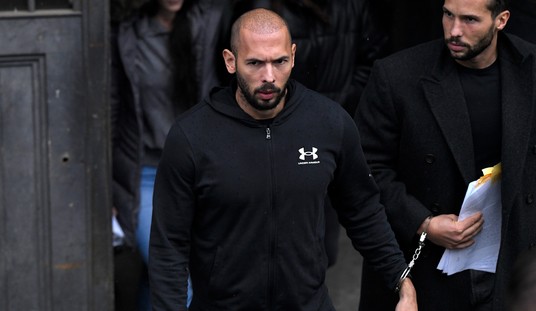A couple of months back, President Obama gave U.S. Attorney General Eric Holder until July 12 deadline to review the internal rules governing his department’s efforts to seek information from the press and make recommendations, the better to protect the integrity and privacy of journalists, after the onslaught of Scandalmania in which the administration seized the records of reporters of both the Associated Press and Fox News. Amazingly, Holder seems to have found the time to actually comply with a deadline demanding he cough up some kind of report. How kind.
Atty. Gen. Eric H. Holder Jr. promised tough new restrictions Friday on the seizure of journalists’ phone records and emails, backing off from the Obama administration’s aggressive use of secret court orders to obtain news media records as part of investigations into leaks of government secrets.
The changes, which lawyers for news organizations hailed as significant new protections for the media’s ability to freely report on government activities, are being proposed after two months of controversy over the administration’s policies regarding surveillance and the free flow of information. …
Holder presented the proposed policy changes to Obama on Friday. Under the new rules, prosecutors in nearly all cases would be required to give news organizations advance notice before seeking records of contacts between reporters and their sources. That would give a news organization time to challenge the demand for records in court.
For several decades, the Justice Department has relied upon internal memos to limit such searches, and advance notification to the media before seeking their records is supposed to be the standard procedure — but Holder’s investigators saw fit to bypass those restrictions because they ostensibly believed that seeking cooperation with the AP or Fox might “pose a substantial threat” to the investigation. Supposedly, these revised more-like-guidelines-than-actual-rules are going to add more safeguards to the deployment of such a tactic:
“The Department of Justice is firmly committed to ensuring our nation’s security, and protecting the American people, while at the same time safeguarding the freedom of the press,” Mr. Holder said. “These revised guidelines will help ensure the proper balance is struck when pursuing investigations into unauthorized disclosures.” …
Congress has generally forbidden search warrants for journalists’ work materials, but the statute makes an exception if the reporter is suspected of committing a crime. An F.B.I. agent wrote that Mr. Rosen qualified for that exception because he had violated the Espionage Act by seeking government secrets to report. …
The revision to the guidelines would bar such a tactic by saying that the “suspect exception” may only be invoked “when the member of the news media is the focus of the criminal investigation for conduct going beyond ordinary news-gathering activities.”
Search warrants invoking the exception, the revision adds, will not be allowed “if the sole purpose is the investigation of a person other than a member of the news media.”
Also, the new guidelines will require the attorney general to sign off on invoking the exception. Previously, a deputy assistant attorney general could do so.
(Except that, as you’ll remember, Holder did actually approve of the search warrant for Fox News reporter James Rosens’ private e-mails. Just sayin.’)
I think that what we’re meant to gather from all of this ado is that the administration is going to be cracking down on their unprecedented crackdown on leaks, and they’re actually going to stop doing pretty much whatever the heck they want? Why do I find myself still skeptical?







Join the conversation as a VIP Member